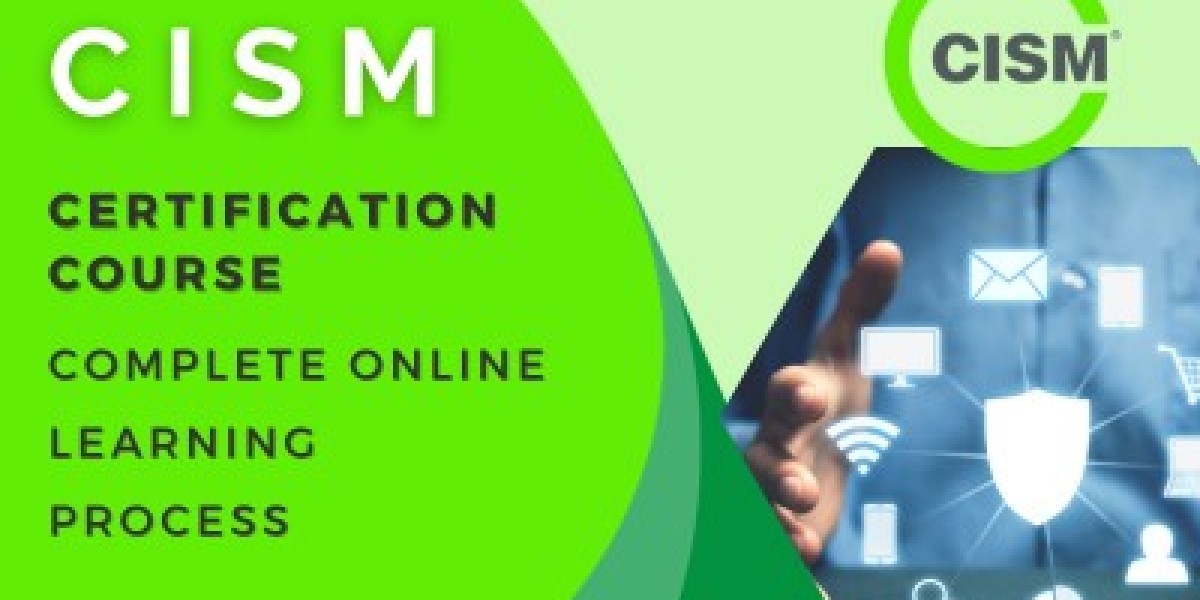The Certified Information Security Manager (CISM) certification is a globally recognized credential awarded by ISACA, a professional association for IT governance, security, risk management, and assurance professionals. Since its inception in 2002, the CISM certification has become one of the most sought-after qualifications for individuals seeking to build or enhance their careers in information security management.
By focusing on the managerial aspects of information security, CISM distinguishes itself from other security certifications that are more technical in nature, such as the Certified Information Systems Security Professional (CISSP) or the Certified Ethical Hacker (CEH). While these certifications emphasize technical skills and hands-on experience, CISM is centered on the strategic, governance, and risk management side of information security.
This certification is designed for individuals who are responsible for managing and overseeing an organization's information security program, making critical decisions regarding cybersecurity policies, and aligning security strategies with overall business objectives. In this article, we will delve into the definition of CISM, its benefits, and how it can advance your career in cybersecurity.
Definition of CISM Certification
The CISM certification in Houston TX, as defined by ISACA, is a management-focused credential for professionals responsible for developing and managing an enterprise’s information security program. CISM-certified individuals demonstrate a deep understanding of how to design, implement, and manage a secure information system that aligns with the organization's goals and objectives.
The CISM certification covers four key domains:
- Information Security Governance: This domain emphasizes the development of policies, procedures, and governance frameworks that align information security strategies with business goals.
- Information Risk Management: In this domain, the focus is on identifying and mitigating information security risks, and the strategies involved in balancing risk and investment in security solutions.
- Information Security Program Development and Management: This area deals with establishing and managing information security programs that cover an organization’s security needs.
- Information Security Incident Management: This domain emphasizes the processes of preparing for and responding to security breaches or incidents.
Who Should Pursue a CISM Certification?
The CISM certification is ideal for mid- to senior-level IT professionals looking to advance their careers in information security management. This includes:
- Information Security Managers
- Security Consultants
- IT Directors
- Risk Managers
- Chief Information Security Officers (CISOs)
It is particularly well-suited for professionals who have already gained experience in technical roles and want to transition into managerial or leadership positions within cybersecurity.
Prerequisites for CISM Certification
To earn the CISM certification, candidates must meet the following requirements:
- Work Experience: You must have at least five years of cumulative work experience in information security management, with at least three years of experience in three or more of the CISM domains (security governance, risk management, security program management, and incident management). Some waivers are available for individuals with other relevant certifications or academic degrees.
- Passing the CISM Exam: The exam consists of 150 multiple-choice questions covering the four domains mentioned above. The exam duration is four hours, and candidates need to score at least 450 out of 800 to pass.
- Adherence to ISACA’s Code of Ethics: CISM holders must agree to and abide by ISACA's Code of Professional Ethics.
- Continuing Education: Once certified, professionals are required to complete ongoing education (at least 20 hours of training per year) to stay current in the evolving field of information security management.
Benefits of CISM Certification
The CISM certification offers a wide range of benefits for both the individual and the organization. Below are some of the key advantages:
1. Career Advancement Opportunities
A CISM certification demonstrates your expertise in information security management, making you a highly competitive candidate for leadership positions such as Information Security Manager, IT Director, or Chief Information Security Officer (CISO). Organizations are increasingly prioritizing cybersecurity, and having a credential like CISM can open doors to higher-level roles with greater responsibilities and, often, higher salaries.
2. Global Recognition
CISM is recognized internationally as a gold standard for information security management. Holding this credential can significantly improve your credibility and marketability across industries and geographic locations, making you a more attractive candidate to global organizations.
3. Alignment with Business Objectives
One of the primary focuses of CISM is aligning information security strategies with an organization’s business goals. This managerial focus is crucial because modern cybersecurity isn’t just about protecting data—it’s about understanding how security impacts business operations, revenue, and growth. Certified individuals are well-equipped to develop security frameworks that support an organization’s objectives while mitigating risks.
4. Enhanced Understanding of Risk Management
Risk management is a significant component of the CISM certification. The ability to identify, evaluate, and prioritize security risks is crucial in today's dynamic threat landscape. CISM-certified professionals have the skills to balance security investments with business needs, which is a key advantage for organizations aiming to mitigate risks while managing costs.
5. Higher Earning Potential
Due to its focus on managerial skills and risk assessment, CISM-certified professionals typically command higher salaries than their non-certified peers. According to research from PayScale and other salary surveys, CISM holders earn, on average, around $118,000 per year in the U.S., with some CISM-certified professionals earning well over $150,000 annually, depending on experience and job location.
6. Improved Security Strategy
CISM-certified professionals are proficient in designing comprehensive security programs that address the specific needs of their organization. By combining technical knowledge with business acumen, CISM holders are well-equipped to create robust security frameworks that not only protect against external threats but also support the organization’s overall strategic goals.
7. Industry Demand
There is a growing demand for cybersecurity professionals, and CISM is one of the most sought-after certifications by employers looking for skilled information security managers. According to ISACA, CISM is consistently listed as one of the top cybersecurity certifications in job postings worldwide.
CISM Exam Overview
The CISM exam is rigorous and requires comprehensive preparation. The 150-question exam tests your knowledge across the four domains mentioned earlier. Below is a brief breakdown of what to expect:
- Information Security Governance: 24% of the exam
- Information Risk Management: 30% of the exam
- Information Security Program Development and Management: 27% of the exam
- Information Security Incident Management: 19% of the exam
The exam is scored on a scale of 200 to 800, and a passing score is 450 or higher. Candidates are encouraged to dedicate ample time to study the exam material, use ISACA’s review materials, and take practice tests to become familiar with the exam format and question types.
Conclusion
The CISM certification is a powerful tool for information security professionals who want to advance their careers into management or leadership positions. It provides a well-rounded education in information security governance, risk management, and program development, making it one of the most recognized and respected certifications in the industry. Whether you're looking to increase your earning potential, broaden your expertise, or align your career with the growing demand for cybersecurity professionals, the CISM certification can be a valuable step toward achieving those goals.



